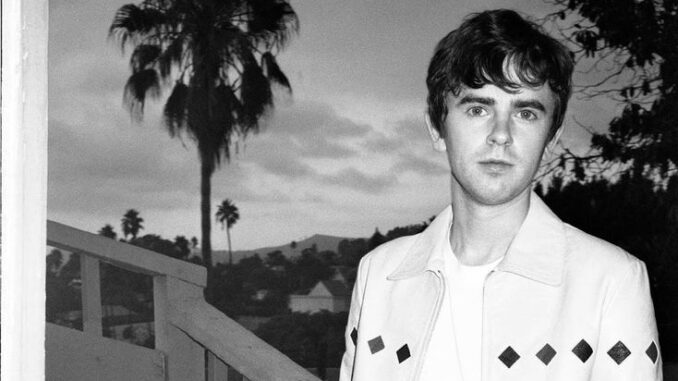
Shaun’s journey begins long before his white coat days. We learn of his troubled upbringing: a home filled with neglect, bullying, and the devastating loss of his younger brother Steve — the only person who truly believed in him. That loss shapes Shaun’s desire to become a doctor: he wants to save lives because he couldn’t save Steve.
That moment — that trauma — becomes his engine. His memory becomes sharper, his medical knowledge becomes encyclopedic, and his motivation never wavers. He wants to heal not just bodies, but also the broken promises of a painful past.
Fighting Prejudice in the Operating Room
From the very first episode, Shaun’s journey is anything but smooth. When Dr. Aaron Glassman, a father figure and mentor, advocates for Shaun’s acceptance into the prestigious San Jose St. Bonaventure Hospital, the board is skeptical. “How can someone with autism handle the chaos of surgery? The emotions of patients? The teamwork of an ER?”
It’s a question the show dares to ask — and then brilliantly answers over and over again. Shaun doesn’t just “handle” the job. He excels at it.
He sees internal injuries others miss. He solves rare diseases in real-time. His mind can visualize anatomy like a 3D scan. His precision? Flawless. But more importantly, Shaun brings something many doctors forget to practice: unfiltered honesty and genuine empathy.
Ironically, by not sugarcoating emotions, Shaun often reaches patients in ways no one else can. His vulnerability becomes his strength.
Freddie Highmore: A Role Beyond Acting
To bring Shaun Murphy to life is no small feat. British actor Freddie Highmore, known for his haunting role as Norman Bates in Bates Motel, transformed completely for this role. He’s not autistic himself, but he immersed himself in research, worked with consultants, and — most crucially — portrayed Shaun with a level of nuance that earned him a Golden Globe nomination and widespread praise.
Highmore never lets Shaun become a caricature. He gives him layers: the awkward smile, the trembling hands during emotional stress, the excited voice when discovering a new surgical technique. It’s not just acting. It’s embodiment.
Love, Friendship, and Heartbreak
Shaun’s brilliance in the OR is unmatched, but the emotional learning curve is steep. His romantic relationship with Lea is filled with beautiful highs and heartbreaking lows — especially when they face an unexpected pregnancy and devastating miscarriage.
His friendship with Claire, Park, and Dr. Andrews evolves from initial awkwardness to genuine connection. He learns how to celebrate birthdays, how to handle rejection, how to apologize. Each episode feels like a masterclass in emotional intelligence — not from a perfect man, but from someone learning every step of the way.
And perhaps that’s why fans resonate with Shaun so deeply: because his victories are hard-earned. His growth is not linear. And yet, he never gives up.
Changing How We See Autism
The Good Doctor shattered stereotypes by placing a neurodivergent character in the spotlight — not as comic relief or sidekick, but as the lead. Shaun isn’t defined solely by his autism. He’s a skilled surgeon. A loving partner. A flawed, funny, brave, brilliant human being.
Autism, in this portrayal, is not a limitation. It’s a different lens through which to experience the world — one that sees deeper truths and asks harder questions. Through Shaun, we’re reminded that “different” doesn’t mean “less.” It just means different.
Families around the world have shared how the show helped them understand their autistic children better. Some doctors have even said it helped them rethink how they communicate with neurodiverse patients. That’s the power of representation done right.
With the final season of The Good Doctor bringing Shaun’s story to a close, fans are preparing to say goodbye. But the impact lingers. In every viewer who saw a bit of themselves in Shaun. In every hospital that may now be a little more inclusive. In every aspiring doctor who dares to be different.
Shaun Murphy may not always say the right thing. He may not always understand sarcasm or social norms. But when a life is on the line, he’s the person you want in the room. Because he doesn’t just heal bodies — he sees the person inside.
